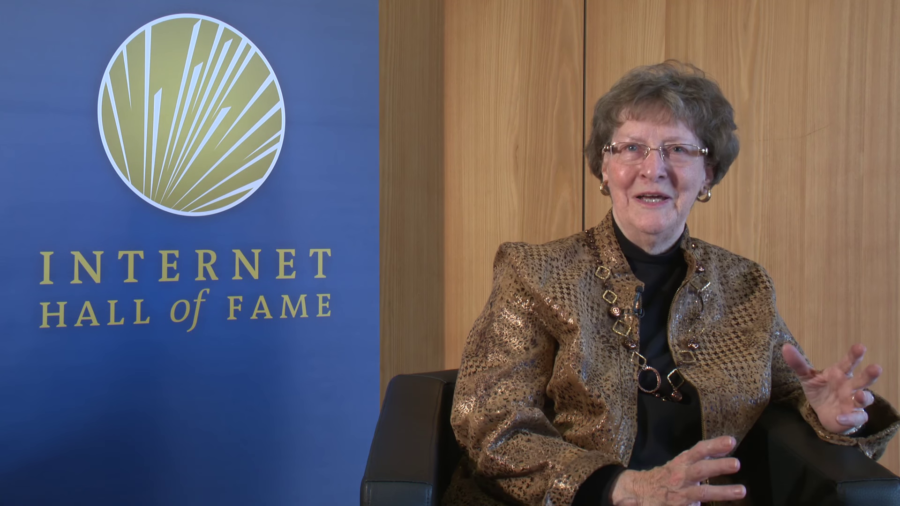I’m Elizabeth Feinler, usually known as “Jake.” That’s my nickname. And I ran the contract for the Network Information Center on both the ARPANET and the Defense Data Network back in the 70s and 80s.
There were two big services on the network at the time. One was the NIC and one was the NOC; Network Operations Center, Network Information Center. The NOC was more involved with whether the backbone was—everything was working. We were more involved with keeping people informed. And one of the things I used to pride myself on was if a new group came along, and often that would be someone saying, “We’re going in this direction.” And I would say well, the Internet’s—you know, there’s a way of doing business, a way of interacting with people. And we would introduce them to that.
We provided— In the early days, nothing was online. There were no online documents. So it was a lot of hardcopy, and we made a transition from providing information in hardcopy to providing information online. And one of the things I kind of pride myself on, in the early days we put out the directory, which was sort of a phone book of the Internet. And there were a lot of military people, there were a lot of graduate students. So there was a spectrum of users and developers.
And these were in the 70s. There were a lot of strong feelings about the Vietnam War, the military and whatnot. So I took it upon myself not to put anybody’s title in the directory. So that meant that everybody was talking to everybody and they didn’t know who they were talking to. I thought that was kind of democratic at the time.
First of all, the Network Information Center was in California. And most of the military users were—not all, but a lot of them, they were all over the world, actually, but a lot of them were in different time zones. So we would come on early in the morning and then we’d still be getting telephone calls as we went out the door. And so finally by the time I left, we had an official phone service hotline from five in the morning until five at night California time, and that was eight o’clock at night on East Coast time.
But the machines were very crowded, and they were very tiny. And you couldn’t run a program and have users using it at the same time. So, if you wanted to run a big program you usually had to do it overnight. So sometimes we would be there till midnight, and sometimes we’d do what we called a rollover. You’d be there all night and then have to run the hotline the next morning, not sure who you were at that point, but there was a lot of dedication. I remember coming up there when we were cutting over to TCP/IP. It was a lot of work. And I remember one my programmers, I went downstairs to get something. I came back up and he’s asleep on the stairs. He went down to get a Coke and he fell asleep on the way back. So that was the kind of dedication. Everybody was really dedicated to making this thing work.
Privacy was not an issue. And I think that security wasn’t, in the sense that most people were builders of the network in my time. So they wanted things to be open so they could get at and fix them, change them, look at them, compare. You know, it was a kind of—it was a research environment. From the time that I was on, I would say the World Wide Web hit just about that time—it was starting up when I left. And that is the killer app. That is the thing that opens the network up to the world. And it was very exciting. And of course the commercialization of the network. In my day, all the companies were trying to get into it. Now they own it. So it’s a whole different situation.
Well, I’m very positive about— I mean, the access that people have is incredible now. You know, as I said I went to this small university. It was a state college. There was no way we had access to the kind of information that any kid has today. And that’s fascinating to me. Also the way people can interact with each other. I mean, could anybody have imagined their grandmother using a computer? I mean, this is ridiculous, and it’s wonderful. But it’s exploded so fast that there are problems, and they’re going to have to be worked out. And so that’s a concern. There’s things on the net I wish weren’t there, but it’s a vehicle. There’s going to be good, there’s going to be bad. And I don’t think using the vehicle as the hammer is going to be the answer. We’re going to have to work it out as humans, like we always have to work out things that are good or bad.
